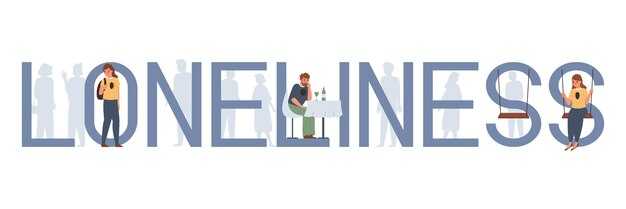There’s a clear theme that keeps appearing in people who tell me they don’t really know themselves — they’re unsure of their tastes, their hopes, their aspirations. The recurring source I notice is that, as children, no grown-ups really noticed who they were. Sometimes there was outright neglect or abuse, but what’s especially damaging is when parents fail to see and affirm the distinctive, lovable parts of a child. I believe that a parent’s capacity to recognize and reflect a child’s unique personality is fundamental to healthy development.
Today’s letter comes from a woman who signs herself Sonia. She writes:
“Dear Anna — I’ve been watching many of your videos and they really strike a chord with me. I loved the exercise about writing down what a dream life would look like (that’s at the start of my dating course — link in the description). So I got a large pad and my favorite pen and began. After jotting down a few things I’d like, I realized I have no idea what I want from life. I’ve never known. I still don’t. I don’t know whether I have any talents, and I don’t feel passionate about anything.
“I started underlining thoughts to come back to, but let me tell you my story. If I won the lottery I’d be free — travel a bit, see things, put my daughter through college and escape my dull marriage. Right now I can barely get by. I function because I must, mostly for my daughter. But I feel my life is finished. I’m 56 and exhausted. Being richer would make practical things easier (I’m always short of money between paychecks), though I’m not convinced it would mend the emptiness inside. I simply don’t know what to do next. Raising my daughter, doing the housework and keeping afloat financially feels like all I can manage; I can’t imagine adding anything else.
“I remember at 14 telling my mother I didn’t feel I had an identity. She brushed it off and told me to stop being ridiculous. I still feel the same now. I used to excel in school drama because I could fully become a character — it gave me someone to be.
“A bit about my background: I was born in mid-60s in the UK. My parents had both been only children, were themselves somewhat indulged, and their marriage was violent and abusive from the start. They’d only been married a year when I was born and they were not ready for parenthood. Both worked, so a neighbor in our building looked after me until I was six months old. When she could no longer manage, my grandparents took me to live in the countryside. My grandparents loved me and tried to do right by me, but the trauma of being returned to my parents a year later was profound. My grandmother said I had just been learning to talk when I went back to them, but with my parents — strangers to me — I stopped speaking for quite a while. I suspect that deprivation interrupted normal brain development.
“I think my mother tried to love me at first, but I wasn’t the child she wanted. She became pregnant with my brother, and he became everything to her. She later told me he was an easier child and that she couldn’t relate to me. I don’t have many concrete memories then, but I recall being hurt that she wouldn’t let me help feed my baby brother. She insisted on an exclusive relationship with him and kept others out. My father was vicious and used his rage on my mother; he was sadistic and even laughed when we cried. I remember my mother being beaten in front of me even before my brother was born, and that kind of violence continued. My brother and I would sit frozen at the end of the bed listening to the shouting downstairs, wondering whether she’d be lying dead in the morning. I could never understand why, if she couldn’t stay for her own sake, she didn’t leave to protect us. We were hit, too, but the emotional cruelty was even worse than the physical abuse. He seemed to enjoy our suffering.
“It was the 70s and divorce carried stigma, but our grandparents were alive then and I think they could have helped her if she’d left. Instead she remained and we all had to survive his behaviour. After my brother was born my mother went back to work and left me with a childminder who was unkind; watching my mother walk away through the garden gate as a toddler felt like my heart was being taken with her. I begged not to be returned to that situation but she ignored me, and that’s where a deep sadness grew in me. I learned very early I could not rely on my mother to protect me, so I relied on myself — a pattern that persists. Part of me longs to put that load down.
“My grandmother always said it was obvious how my mother favoured my brother. When I was five or six, my mother would spend half an hour saying good night to him, and then shout down a quick ‘good night’ to me as she left the room without coming in to kiss me. One night I went into my brother’s room hoping to be part of their laughter. The moment I entered they fell silent; I felt I had to leave and returned to my lonely bed. On another occasion, my mother cut a fruitcake (my favourite) unfairly, handing my brother the larger piece. When I objected she declared I was being ridiculous and forced me to eat it — humiliating. My brother saw all this and learned I was of no consequence. Later he assaulted me; he said there was no point telling our parents because I would not be believed, and he was right.
“When I did well, even winning a school prize for story writing — a big silver trophy with my name on it — my mother acted as though nothing had happened. I spent my life wondering how to get her attention; I once thought murder might do it. The subtle denigration from my mother — who was charming in public — felt worse than my father’s obvious cruelty because no one would have believed such coldness came from her. My brother still acts pompous and entitled; they both belittle my accomplishments and celebrate my failures. A few years ago, after another hurtful incident, I severed ties completely and mostly felt relieved. When my mother turned 80 I sent a card that said, ‘thinking of you on your special day with love.’ She didn’t answer and has never phoned me. Eventually I stopped initiating contact. They were outraged when I did; as if I had no right to act for myself. But this is my life and I will live it how I choose.
“So that’s my story. Why do I now feel such inertia? Why can’t I move forward or imagine the future with any enthusiasm? What can I do? Best wishes, Sonia.”
This is profoundly sad. It’s easy to see how deeply traumatized you are, Sonia, and how your current struggles likely arise from that history. But understanding the origin doesn’t change the present by itself — healing must happen now and from within. Let’s unpack what you shared so we can validate it carefully and then map out next steps to rebuild, refill your inner well and rediscover identity and joy. You’re not too old — mid-50s is a place I started making big changes myself. Many new things can still happen.
You wrote, “If I could just win the lottery…” and mentioned a lackluster marriage. Some money would help practical problems, and that’s true — finances ease life to a point — but they won’t cure the inner emptiness that’s at the root. Your success in drama is important: inhabiting characters gave you a self to be, a space to express. That creativity is a gift. Consider going back to acting classes — they can bring pleasure and give you a vehicle for expression.
From what you described about your mother and father, it sounded like your mother struggled to bond with you and invested herself entirely in your brother. One possible explanation is that some parents can’t tolerate same-gender children as rivals, though labels aren’t essential — what matters is the consequence for you. You were returned from loving grandparents to parents who felt like strangers; you lost the face-to-face engagement and mirroring that helps language and identity develop. Trauma at that age can interrupt normal development, and a loss of that early, attuned attention plausibly contributed to your feeling of not knowing who you are.
Your father’s sadistic cruelty and your mother’s charming public self but coldness at home created a confusing mix that taught you to doubt your own worth. The childminder and repeated abandonment deepened a lasting sadness. You were made into the “nobody,” the black sheep. You later tried to reconnect by sending her a birthday card — a small hope that she might notice you — but she ignored you. That lack of acknowledgement reinforces the message you grew up with: you are invisible. That’s devastating, but it’s not an intrinsic truth about you.
The inertia you mention now — that paralysis about future steps — often looks like the freeze response. People react to overwhelming threat with fight, flight, freeze or fawn. Some people become hyperactive and people-pleasing; others under-function and shut down. What you’re describing fits a freeze pattern: immobilization, low energy, difficulty imagining a different life. That response can be healed by working with the nervous system — through movement practices (yoga, dance, martial arts), carefully guided somatic approaches (Irene Lyon’s work is one example people find helpful), and by building a daily practice that helps regulate the nervous system and clear the mind.
One practical set of tools is a daily writing-and-rest technique — a specific format of writing fears and resentments twice a day followed by rest and meditation. Over time, this can help release recurring fearful and resentful thoughts, tidy the clutter in the mind and allow the brain to reorganize into calmer, clearer patterns. When the nervous system quiets and clarity returns, small experiments in identity and activity become possible. You were denied the ordinary “supervised experiments” a child should receive from parents, so now the work is to experiment for yourself: try acting again, try writing, try small contributions that feel meaningful (even something small like helping with shopping carts), and notice the effect on mood and identity.
It’s okay if the very thought of imagining an ideal life felt impossible — many people find a blankness where preferences should be. That’s a symptom, not a verdict. Beginning with tiny, restorative actions — a small taste of joy each day — is how to start: a short walk that brings you pleasure, an acting or writing class, a tiny creative project. Those little bits of pleasure are the first sunlight.
There are concrete resources that can help: trauma-sensitive somatic courses, therapy geared to nervous system regulation, and daily practices that teach a reliable way to discharge the chronic fear and resentment. If meditation is new, start with short practices; rest afterward and notice the differences slowly but surely. When you begin to receive inner signals about preferences and desires, they’ll feel new, and you’ll begin to reclaim a sense of “me.”
Next, a few shorter letters were included. One came from a woman calling herself Mercy:
“Hi Anna — I’m a nurse in my early 20s and after three years in the work I feel I can’t go on. I lashed out at my parents; they’re nicer now but still don’t really see me as a person. Their treatment affected me forever. I isolate in real life, stay mentally stuck on people who aren’t good for me, and family conflict sends me into rage. I have one close friend who moved away. At 16 I was abruptly sent to take the SATs and fly back to the U.S. to start nursing school without proper preparation; when I tried to change majors they withdrew financial support, effectively forcing me into that path. I have extreme rage at people who remind me of my father and I sometimes repeat their patterns. My younger sister physically confronted our mother as a teen, yet I’m still labeled the problem child. I’m so dysregulated and exhausted; sports are my only relief. We moved across three continents and shifted from stability to poverty in four years. My parents dealt with their own mental health issues and I was shamed for my skin problems (later found to be an autoimmune condition), bullied and compared unfavourably to a sibling. We were part of an extreme religious culture combined with immigrant pressures. I’ve tried to prevent suicide attempts in the family since I was a child — I stopped my mother and another close friend at different times, and a friend died by suicide at 14. My father cheated and fathered children outside the marriage. Nursing often makes things worse; patients can be undermining and accusatory, and though some patients show gratitude and connection that warms me and leaves me in tears afterwards, both kinds of encounters are destabilising. My anxiety medication is at maximum and has needed increases yearly. When anxiety spikes I can’t eat, my performance in sports suffers, and I feel stuck. I can’t trust men because of my father, though I long for a healthy romantic relationship. Financial instability keeps me tethered to this career that I sometimes wish to escape. How do I move forward?”
This is heart-rending. First, name the obvious: your symptoms — isolation, rage, panic, exhaustion, emotional flooding — are typical responses to the kinds of trauma and chaotic family life you experienced. You are not “messed up” by choice; these reactions are normal outcomes of abnormal early environments. The fact you became a nurse, completed training under pressure and show up for patients at all is a sign of enormous resilience and accomplishment. The job’s emotional toll is real: connecting deeply with someone and then having that person leave can trigger the longing you never received from your caregivers. It’s understandable you cry afterwards.
Because your medication is at a high dose and you feel overwhelmed, a medication review with a trusted physician could be crucial. Medications can help, especially short-term, but they’re rarely the whole solution. There are other ways to re-regulate the nervous system: somatic work, daily writing/rest practices, exercise (which you already use — great), therapy aimed at complex trauma, and peer support groups.
Practical steps to consider:
– Try a period of reduced or no contact with family if that feels safe. You don’t have to decide forever; take it one day at a time. If your family controlled you with money as a teen, financial separation is a reasonable boundary now.
– Strengthen connections you choose: regular calls or visits with your one good friend might be stabilising. Build more companions gradually.
– Look into peer-support groups like Adult Children of Alcoholics (ACA) or other groups for people from dysfunctional families. Hearing others with similar histories is validating and can reduce isolation.
– Learn and practice somatic regulation techniques and a daily writing + rest routine (the daily practice). Doing those twice daily can gradually quiet the overwhelming thoughts and feelings and make space to decide what you want.
– Consider if a different nursing role (less emotionally dangerous) or a related but less stressful job might be possible: clinics, private practice, non-clinical health roles. Small career moves can protect your mental health while giving you income and options.
– Seek therapy modalities that treat complex PTSD and nervous system dysregulation (EMDR, sensorimotor psychotherapy, somatic experiencing, or polyvagal-informed therapy, among others). If one therapist doesn’t feel like a fit, it’s okay to try another.
Also, be cautious about letting a trauma identity be the whole story. It’s necessary to name what happened, but making trauma the core of your identity can trap you. Trauma is what happened to you — it’s not who you are. The focus of recovery is to reclaim agency: the power to make decisions now. Work on what you can actually change — your thoughts, behaviours, boundaries, habits — rather than trying to force others to acknowledge or fix what they did. That will be more liberating.
A simple exercise to start shifting identity is to make two columns on paper. In the left column list painful facts from your past. In the right column write strengths, supportive people, or skills you developed that helped you survive. That helps hold both truth and resource at once. Also, set a time limit for trauma conversations with safe people — share briefly, then move to another topic to avoid getting stuck in rumination.
For additional, free peer support, consider 12-step groups or peer-led programs; there are also specific resources for people harmed by family dysfunction. If group help is hard to access locally, online meetings and communities can be excellent. Also consider joining a structured program or community with guided practices and peer support that emphasizes daily self-care and re-regulation.
Finally, a letter from Margie:
“Hi Anna — I grew up with three sisters, a chronically drunk father and an anxious, dependent mother. We could have afforded vacations but never went. My mother was consumed by her husband or survival, staying up to await his return and crying about his indifference. As a child I used to ride my bicycle in the alley and imagine a different self and a different life. My father berated me and my sisters, calling us stupid and foolish. My mother refused to tell me I was pretty, saying she didn’t want me to get conceited. At 18 I began stripping and doing private parties, eventually becoming an escort. I met my daughter’s father through that work (call him Arman). He was kind and patient with me. Initially the relationship was meant to be transactional, but it developed into something real.
“Arman kept secret how he made money (identity theft/fraud) and was living illegally; he had a toddler in his home country and avoided bringing family here. To spite him I returned to sex work privately. After Arman’s arrest seven years ago and deportation four years ago, we still FaceTime occasionally, but he provides no financial support and hasn’t worked in years. I told him I would wait because I feel I owe it to my children. I also feel no one will love me as he did; he stood by me through illnesses like ulcerative colitis when I lost my hair. I have a ‘sugar daddy’ now (Mark) who provides a monthly allowance, which keeps us afloat while I work part-time retail so I can care for my kids. I was recently misdiagnosed with ADHD. I am drawn to a crush at work but want a real, committed relationship. I want to stop living this way and need steps to get there.”
Margie’s experiences show how damaging parental insults, instability and shame can be. The story of moving from fantasising about a different life to survival strategies that included sex work is familiar in its logic: when dignity, safety and resources are missing, people take the routes that feel available. It’s important to be clear: sex work is often framed as empowerment, but for many people it functions as survival and is underpinned by histories of hurt. You deserve a life where your income doesn’t depend on trading sex for money. That’s not moralizing — it’s a safety, dignity and long-term wellbeing concern.
Practical suggestions for Margie:
– Renounce the exploitative arrangements when feasible and develop alternate, sustainable income sources. Part-time retail might allow time with children, but it’s rarely enough. Explore education, vocational training, scholarships or social programs for single mothers that provide paths to better-paying, stable work.
– Seek peer support groups, especially ones that address sexual compulsion, addiction or recovery from sex-based survival strategies — Sex and Love Addicts Anonymous (S.L.A.A.) can be a helpful community where women share experience and learn new patterns. 12-step approaches and community-based recovery groups are free and widely available.
– Get safe legal and financial advice where needed. If dependence on a partner’s irregular support keeps you tied to unhealthy dynamics, a plan to build independence step-by-step is vital. That plan can include applying for benefits, investigating local programs for single mothers, exploring training, and searching for more stable daytime work or flexible education options.
– Work on self-worth and identity outside of past sexualized survival roles. You deserve to be admired for your intelligence, parenting, persistence and resilience. Your daughters will benefit enormously from watching you reclaim agency and build a different model of dignity and self-sufficiency.
– Consider therapy and peer groups focused on trauma recovery and on learning new relational patterns. Don’t let one romantic fantasy (like waiting for Arman) stop you from creating a secure life now. Also, be mindful of the emotional cost in waiting for someone who offers no material support; that waiting may be repeating a pattern of self-erasure.
General closing thoughts to all three letter-writers:
– Trauma is an injury, not an identity. What happened to you shaped symptoms and behaviours that now interfere with life, but you are not defined by those wounds.
– Healing involves re-regulating the nervous system, reclaiming agency, and experimenting with small acts that reveal preference, capacity and joy. Daily practices that combine targeted writing, rest and short meditations can serve as a reliable tool to release stuck emotions.
– Build deliberate micro-steps: try one class, one short creative project, one change in boundary, one small financial step. Keep moving with “chin up, one foot in front of the other.”
– Seek out communities — peer groups, support meetings, mentoring — because healing and growth are rarely solitary processes. Groups like ACA, S.L.A.A., 12-step communities or trauma-informed peer circles provide practical, affordable support and the companionship of people who truly understand.
– If medication is being used, work with a physician to ensure it’s helping rather than numbing or masking the capacity to recover. Meds can be useful but should be part of a broader plan that includes nervous-system work, therapy and social support.
– Do an exercise of two columns: on the left, list the things that harmed you. On the right, list strengths, people who were kind, skills you developed because of hardship. This helps shift identity away from the trauma story to a fuller, truer narrative that includes resilience and resources.
– When tempted to make trauma the center of identity, remember the goal: to emerge as your full, real self who contributes gifts to the world. That may be through writing, acting, caring work, entrepreneurship, or parenting — whatever brings meaning and joy. Healing’s point is liberation: to live creatively and with purpose again.
Each of these women already carries seeds of the life they want — creativity, empathy, survival skills, love for their children. Start with tiny acts that express those seeds and build them into steady practices. There’s help available: peer groups, tried-and-tested daily techniques, therapy that targets trauma’s imprint on the nervous system, and practical steps toward financial and relational independence. Take one small, deliberate step today, then the next. Over time those steps add up into a different life.


 Neglected as a Child, Lost in Your Relationship Now (4-video compilation)">
Neglected as a Child, Lost in Your Relationship Now (4-video compilation)">

 Это заставляет их выходить на контакт! (Момент, когда они наконец пишут вам) | Мотивационная речь Джордана Питерсона">
Это заставляет их выходить на контакт! (Момент, когда они наконец пишут вам) | Мотивационная речь Джордана Питерсона">
 Когда Никто Не Слышал Вас В Детстве… ВОТ Что Это Делает С Вами Сейчас">
Когда Никто Не Слышал Вас В Детстве… ВОТ Что Это Делает С Вами Сейчас">
 Вы не сумасшедры — вот как выглядит травма у женщин">
Вы не сумасшедры — вот как выглядит травма у женщин">
 Почему они говорят: «Ничего из того, что я ДЕЛАЮ, никогда не бывает достаточно хорошо?!!»">
Почему они говорят: «Ничего из того, что я ДЕЛАЮ, никогда не бывает достаточно хорошо?!!»">
 ">
">
 Почему ваш избегающий партнер уклоняется от вас и как я перестал это делать.">
Почему ваш избегающий партнер уклоняется от вас и как я перестал это делать.">
 Вы *ВИNOVATЫ* в этой двойной стандартизации в отношениях?">
Вы *ВИNOVATЫ* в этой двойной стандартизации в отношениях?">
 Как исцелиться от чрезмерной бдительности, вызванной жутким сексуальным поведением родителей">
Как исцелиться от чрезмерной бдительности, вызванной жутким сексуальным поведением родителей">
 Они стояли в стороне, пока тебя обижали. Теперь они хотят отношений.">
Они стояли в стороне, пока тебя обижали. Теперь они хотят отношений.">
 Только избегающие могут создать связь на всю жизнь с ОДНИМ редким человеком…!">
Только избегающие могут создать связь на всю жизнь с ОДНИМ редким человеком…!">